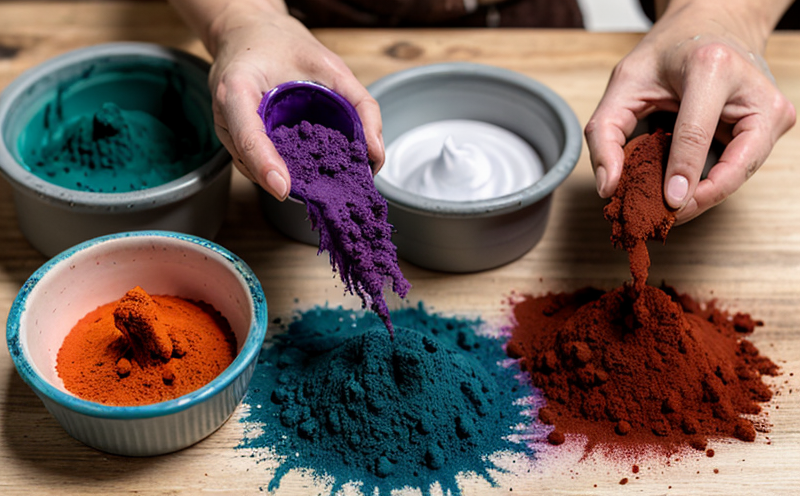Train Seat Textile Dye Testing
The integrity and longevity of train seats are crucial factors in ensuring passenger comfort and safety. The textiles used must not only withstand the rigors of daily use but also adhere to strict quality and regulatory standards. One key aspect of this is dye testing, which ensures that the dyes used in these textiles meet specific performance criteria.
Dye testing for train seat textiles involves assessing several critical parameters including colorfastness, fastness to rubbing, washing, light, and perspiration. These tests are essential to guarantee that the dyes will not fade or run when subjected to environmental conditions such as sunlight, moisture, and mechanical abrasion.
Our laboratory specializes in providing comprehensive dye testing services for train seat textiles using industry-recognized methods. This includes adherence to international standards like ISO 105, ASTM D6954, EN 832, and IEC 60325. Our team of experts can help you understand how these tests impact the overall quality and performance of your product.
For instance, colorfastness to light (ISO 105 F07) evaluates the resistance of dyed textiles to fading when exposed to artificial sunlight. This test is crucial for ensuring that train seat textiles maintain their vibrant colors over time. Similarly, fastness to rubbing and washing tests ensure that the dyes will not transfer or degrade under normal use.
The testing process begins with careful specimen preparation. The textile samples are cut according to standardized dimensions and prepared in a manner consistent with the test being conducted. Our laboratory uses advanced instrumentation such as spectrophotometers, colorimeters, and automated washing machines to ensure precise and accurate results.
Reporting is another critical component of our dye testing service. We provide detailed reports that include all relevant data from the tests performed. These reports are tailored to meet your specific requirements and can be used for quality control, product development, or regulatory compliance purposes.
Applied Standards
The dye testing of train seat textiles is governed by a range of international standards that ensure consistency and reliability across the industry. These include:
- ISO 105 F07: Colorfastness to light – This standard evaluates how well dyed materials retain their color under artificial sunlight.
- ASTM D6954: Fastness to rubbing – It measures the resistance of dye to mechanical abrasion during normal use.
- EN 832: Colorfastness to washing – This standard assesses how well dyes withstand the cleaning process without fading or transferring to other materials.
- IEC 60325 – While not specific to colorfastness, this series of standards covers general requirements for electrical equipment which includes textiles used in train seats.
Our laboratory ensures that all tests are conducted according to these stringent standards, providing you with results that are both reliable and internationally recognized.
Benefits
- Enhanced Product Quality: Ensures that train seat textiles meet the highest quality standards, enhancing passenger comfort and satisfaction.
- Increased Durability: By ensuring dyes are resistant to fading and transfer, the longevity of your products is significantly increased.
- Compliance with Regulations: Our testing services help you stay compliant with relevant international standards, reducing the risk of legal issues or recalls.
- Improved Brand Reputation: Consistent quality and adherence to industry best practices can greatly enhance your brand's reputation.
Use Cases and Application Examples
| Use Case | Description |
|---|---|
| Quality Assurance | Regular dye testing ensures that train seat textiles consistently meet quality and performance standards. |
| New Product Development | Dye tests help in selecting the most suitable dyes for new product designs, ensuring durability and colorfastness. |
| Compliance Audits | Testing helps ensure that your products meet all relevant regulatory requirements, facilitating smooth audits. |
| R&D Projects | Dye testing plays a crucial role in R&D projects aimed at developing new textiles with enhanced performance characteristics. |





